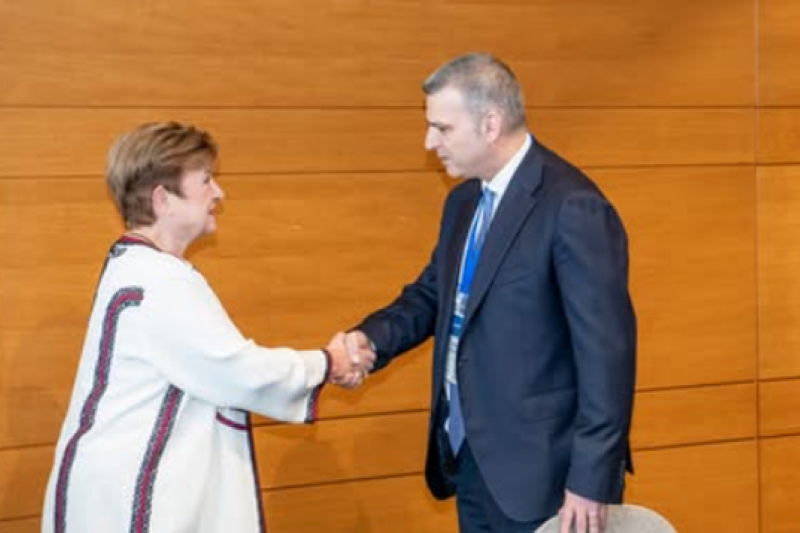'Integration Began through Payment Systems'
The Governor of the Bank of Albania, Gent Sejko, participated in the high-level conference organized in Dubrovnik, Croatia, by the National Bank of Croatia and the International Monetary Fund, on the topic “Growth and Sustainability in Central, Eastern and Southeastern European (CESEE) countries in a More Fragmented World”.
This two-day meeting initially included a roundtable discussion with IMF Managing Director Kristalina Georgieva, attended by Finance Ministers and Central Bank Governors of CESEE countries.
During this closed-door meeting, Sejko presented the country’s main macroeconomic developments, emphasizing that the Albanian economy has had a positive development trend.
“During 2024, economic growth marked 4%; the unemployment rate was close to historical minimum levels, accompanied by rapid wage growth in the private sector; inflation resulted at 2.2%, from 4.8% in 2023; meanwhile, credit growth reached 16.7%,” he said, noting that, “the country’s economic growth was mainly supported by the increase in tourism revenues, which is expected to continue to be a promoter of the country’s economic development.”
Sejko emphasized that, in Albania, economic integration has begun through payment systems. Beyond the modernization of the payment system itself, integration with a wider European market will bring benefits to the real economy.
“Participation in the Single Euro Payments Market and SEPA are laying solid foundations for accelerating exchanges in the economic plan, with countries in the region and with those of the European Union,” Sejko said.
For her part, Georgieva assessed Albania's performance in the macroeconomic framework, highlighting the progress achieved in key areas such as institutional reform and improving the business climate. At the same time, she assured the support and continuity of the International Monetary Fund's technical assistance, underlining the importance of this assistance to guarantee the success of the planned reforms and the European integration process.
During the meeting, the importance of maintaining the independence of central banks was also widely discussed, as an essential element in strengthening public and investor confidence in the financial system. The IMF Managing Director emphasized that protecting this independence serves above all as a key factor in guaranteeing macroeconomic stability and the integration of the country.
The second day of the conference was opened by the Governor of the National Bank of Croatia, Boris Vujcic, and continued with three sessions focused on the macroeconomic policies of the CESEE countries, their role in the single market, and structural reforms.
The CESEE region has achieved sustainable economic growth thanks to structural reforms before accession and participation in the European market. However, it faces new challenges such as the transition to a greener economy, unfavorable demographics, high energy costs, and global fragmentation.
The conference discussed the future role of the CESEE countries in the European economy and the reforms needed to adapt to economic fragmentation, including the completion of the Single Market agenda.













